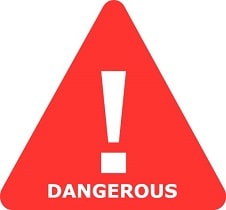
Chlorthalidone Chlorthalidone 0.7 Ml while Breastfeeding
What is Chlorthalidone Chlorthalidone 0.7 Ml used for?
Chlorthalidone Chlorthalidone 0.7 Ml while breastfeeding safe or not? Can there be any side effects for infant while using it during breastfeeding?

Nursing Mothers Thiazides are excreted in human milk. Because of the potential for serious adverse reactions in nursing infants from chlorthalidone, a decision should be made whether to discontinue nursing or to discontinue the drug, taking into account the importance of the drug to the mother.
Chlorthalidone Chlorthalidone 0.7 Ml Breastfeeding Analsys
Chlorthalidone while Breastfeeding
DangerousCAS Number: 77-36-1
Thiazidic diuretic. Long-term treatment with diuretic drugs (particularly those Thiazides with long lasting effect and loop-acting drugs) may inhibit lactation. Use a lower dose as possible, especially during the first postnatal month.
Chlorthalidone Chlorthalidone 0.7 Ml Breastfeeding Analsys - 2
Chlorthalidone while Breastfeeding
CAS Number: 77-36-1
Although amounts of chlorthalidone in milk are not great, its slow clearance may lead to accumulation in the infant, especially while nursing a newborn or preterm infant. It may also suppress lactation. An alternate drug may be preferred.

What should I do if already breastfed my kid after using Chlorthalidone Chlorthalidone 0.7 Ml?
You should immediately inform your health care provider about Chlorthalidone Chlorthalidone 0.7 Ml usage and your breastfeeding interval after usage of
I am nursing mother and my doctor has suggested me to use Chlorthalidone Chlorthalidone 0.7 Ml, is it safe?
Please double check with your doctor if he is aware of your breastfeeding stratus, Ask your doctor if there is any safe alternative of Chlorthalidone Chlorthalidone 0.7 Ml. Check with your doctor if you shall temporally stop breastfeeding. You may go for second opinion as well. Still after all of this if your doctor still recommends Chlorthalidone Chlorthalidone 0.7 Ml then go for it as they have access on more detailed medical and scientific information and they understand your individual medical situation much better.
If I am using Chlorthalidone Chlorthalidone 0.7 Ml, will my baby need extra monitoring?
Extreme level of monitoring required as Chlorthalidone Chlorthalidone 0.7 Ml could be dangerous for kid.
Who can I talk to if I have questions about usage of Chlorthalidone Chlorthalidone 0.7 Ml in breastfeeding?
US
National Womens Health and Breastfeeding Helpline: 800-994-9662 (TDD 888-220-5446) 9 a.m. and 6 p.m. ET, Monday through Friday
UK
National Breastfeeding Helpline: 0300-100-0212 9.30am to 9.30pm, daily
Association of Breastfeeding Mothers: 0300-330-5453
La Leche League: 0345-120-2918
The Breastfeeding Network supporter line in Bengali and Sylheti: 0300-456-2421
National Childbirth Trust (NCT): 0300-330-0700
Australia
National Breastfeeding Helpline: 1800-686-268 24 hours a day, 7 days a week
Canada
Telehealth Ontario for breastfeeding: 1-866-797-0000 24 hours a day, 7 days a week
